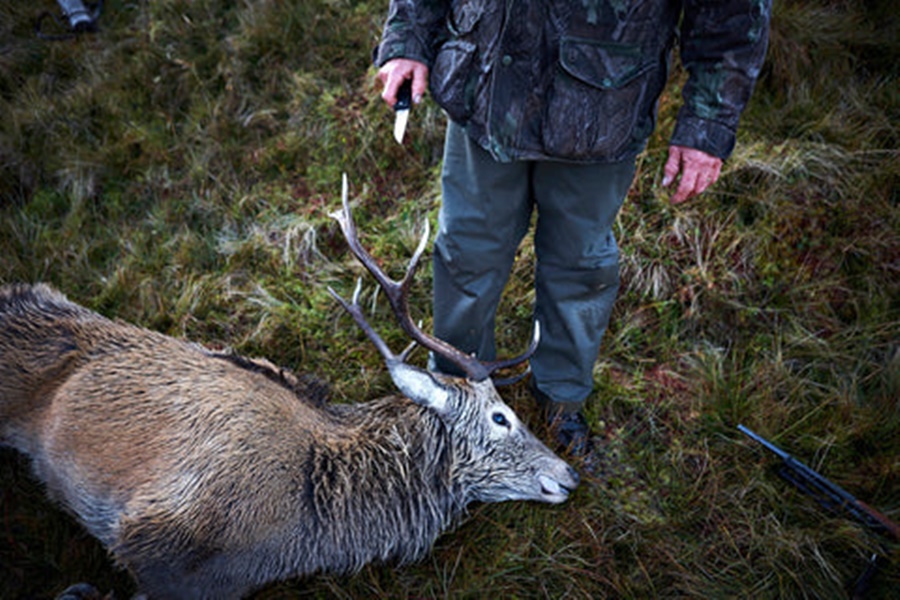Hunting has been a part of human culture for thousands of years, originally serving as a means of survival and sustenance. In the modern world, however, hunting has taken on new dimensions both as a recreational activity and as a tool for wildlife management. While the idea of hunting may seem at odds with conservation, responsible hunting practices can play a vital role in maintaining ecological balance, supporting conservation efforts, and ensuring the long-term survival of many species.
The Concept of Responsible Hunting
Responsible hunting is rooted in ethics, sustainability, and respect for nature. It is defined by the principles of fair chase, legal compliance, and the careful management of wildlife populations. Ethical hunters adhere to local laws and regulations, ensure that their actions do not harm ecosystems, and promote the humane treatment of animals.
Key elements of responsible hunting include:
Adhering to Legal Regulations: Hunters must follow hunting seasons, bag limits, and licensing requirements established by wildlife authorities. These regulations are designed to prevent overharvesting and maintain population stability.
Practicing Fair Chase: Ethical hunters give animals a fair opportunity to escape, avoiding the use of unfair advantages such as baiting or spotlighting.
Utilizing the Harvest: Responsible hunters ensure that the animals taken are used for food, clothing, or research, minimizing waste and showing respect for the life taken.
Supporting Conservation Efforts: Many hunters contribute financially to conservation initiatives through license fees, taxes, and donations that directly benefit wildlife management programs.
The Role of Hunting in Conservation
While hunting may appear counterintuitive to conservation, it has proven to be an effective tool for preserving biodiversity when managed correctly. Wildlife agencies across the world use regulated hunting to control animal populations, reduce human-wildlife conflict, and generate funds for conservation.
Population Control: In the absence of natural predators, some animal populations such as deer, wild boar, or certain waterfowl can grow beyond the carrying capacity of their habitats. Overpopulation can lead to habitat destruction, starvation, and disease. Responsible hunting helps maintain population balance, benefiting both wildlife and ecosystems.
Funding Conservation Programs: In many countries, hunting license fees, permits, and excise taxes on firearms and ammunition contribute directly to wildlife conservation. For instance, the Pittman-Robertson Act in the United States has generated billions of dollars since 1937 to fund habitat restoration, research, and education.
Habitat Preservation: Hunters often support habitat conservation organizations, helping to secure land for wildlife refuges, restore ecosystems, and protect endangered species.
Cultural and Educational Value: Responsible hunting fosters a deeper appreciation for nature. It teaches patience, respect, and ecological awareness, encouraging hunters to become advocates for wildlife protection.
Challenges and Ethical Considerations
Despite its benefits, hunting also faces ethical and ecological challenges. Poaching, illegal trade, and trophy hunting for vanity rather than conservation threaten to undermine legitimate wildlife management. Distinguishing between responsible, conservation-oriented hunting and exploitative practices is essential.
Poaching vs. Legal Hunting: Poaching illegal killing of animals poses a severe threat to endangered species and biodiversity. It is important not to confuse this with regulated hunting, which is scientifically managed and legally enforced.
Trophy Hunting Controversy: While some argue that trophy hunting generates conservation revenue, critics contend that it sends the wrong moral message and can harm vulnerable populations. Transparent policies and strict scientific assessment are necessary to ensure sustainability.
Climate and Habitat Changes: Shifts in habitat availability and climate patterns can affect animal populations, requiring adaptive management and updated hunting regulations.
Global Examples of Conservation Hunting Success
Several case studies demonstrate how regulated hunting can benefit conservation:
Namibia: Community-based natural resource management programs allow local communities to benefit from sustainable hunting. This model has increased wildlife populations and reduced poaching.
North America: Species such as white-tailed deer, wild turkeys, and elk have made remarkable recoveries due to regulated hunting and habitat protection efforts funded by hunters.
Scandinavia: Managed hunting of moose and other game species ensures ecological balance and reduces road accidents caused by overpopulation.
Conclusion
Responsible wildlife and conservation hunting represent a delicate balance between human tradition, ethical responsibility, and ecological necessity. When guided by science, regulation, and respect for nature, hunting can serve as a powerful conservation tool rather than a threat to biodiversity.
By promoting education, enforcing ethical standards, and supporting wildlife management programs, we can ensure that hunting contributes positively to the protection of our planet’s natural heritage allowing future generations to experience the richness and diversity of the wild.


